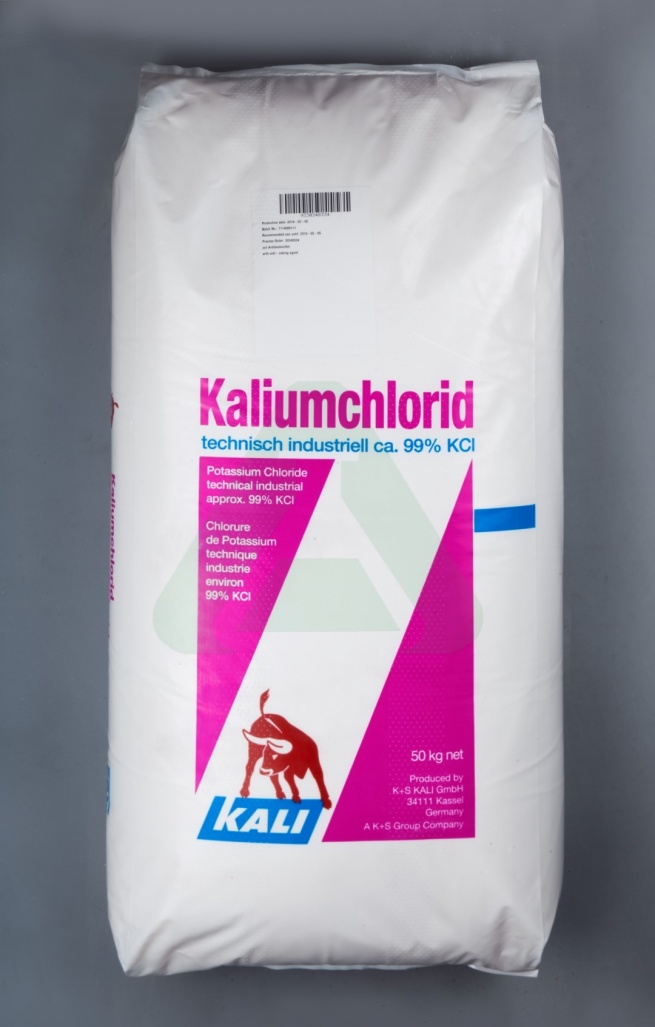Definition and Areas of Use :
Potassium Chloride, a chemical compound, is composed of potassium and chlorine elements. Its symbol in chemistry is shown as KCl. The pure form of this element, which consists of white crystals, is odorless. Potassium chloride, a salt, has high solubility in water. Potassium chloride is an important element for the human body. It ensures the proper distribution of pH of all body fluids and healthy nervous system and muscle function. Low chloride level causes alkalinity of body fluids and low potassium in urine.
Potassium Chloride is taken externally in case of potassium deficiency, which occurs when potassium is excreted in the body or potassium is not taken under normal conditions. In this way, there are potassium chloride drugs in ampoule form on the market. Some diseases that cause potassium loss are diarrhea, vomiting, gastrointestinal fistulas, primary and secondary hyperaldosteronism, chronic protein breakdown. The symptoms are advanced muscle strength loss, tachycardia, hyporeflexia, rapid and rapid breathing.


